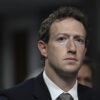The “public option,” or government-run health insurance plan, in the just-released House health care bill was previewed in the news media as a diluted form of hard-core liberal versions that the Left have pushed for months. While that may be the case, calling the public option “more conservative” isn’t appropriate for any form.
To be fair, the intent probably was to distinguish this new public plan as a “government-lite” option because it’s supposed to let doctors and hospitals negotiate rates with the government over payments for health care services. Earlier public plans used Medicare rates (which are really price controls) to compensate doctors and hospitals — far less than what the private market pays.
As we scour through this 1,990-page monster of a bill (topping the 1,502-page health bill from the Senate Finance Committee), it will be important to determine how the feds and health care providers will come to these negotiated rates. Plus, other questions crop up, like will the government-run plan be subject to the same rules and market regulations that private insurers face? If we see the same language in the new House bill that was in H.R. 3200, then government will operate on an unlevel playing field where it has a clear advantage in the marketplace.
The bottom line is that any version of the public plan — whether it’s in the form of a trigger, an opt-out option for states or a bureaucratic cartel moonlighting as a co-op — is not conservative. Conservative health reform puts health care decisions in the hands of individuals and families through reforms on the tax treatment for health benefits and insurance market changes that put the consumer in charge.
This government-run health plan will be a wholly owned subsidiary of Congress. It will progressively displace existing private coverage and give Washington more direct control and decision-making power over the health care of ordinary Americans. If it is financed like most big public health programs, it will accumulate Medicare-style debt, while, as numerous reports from the public and private sectors show, canceling private health insurance for millions of Americans.




























